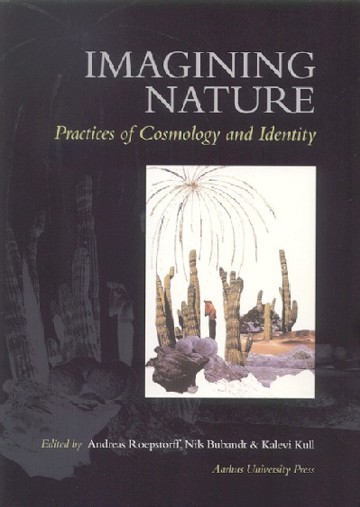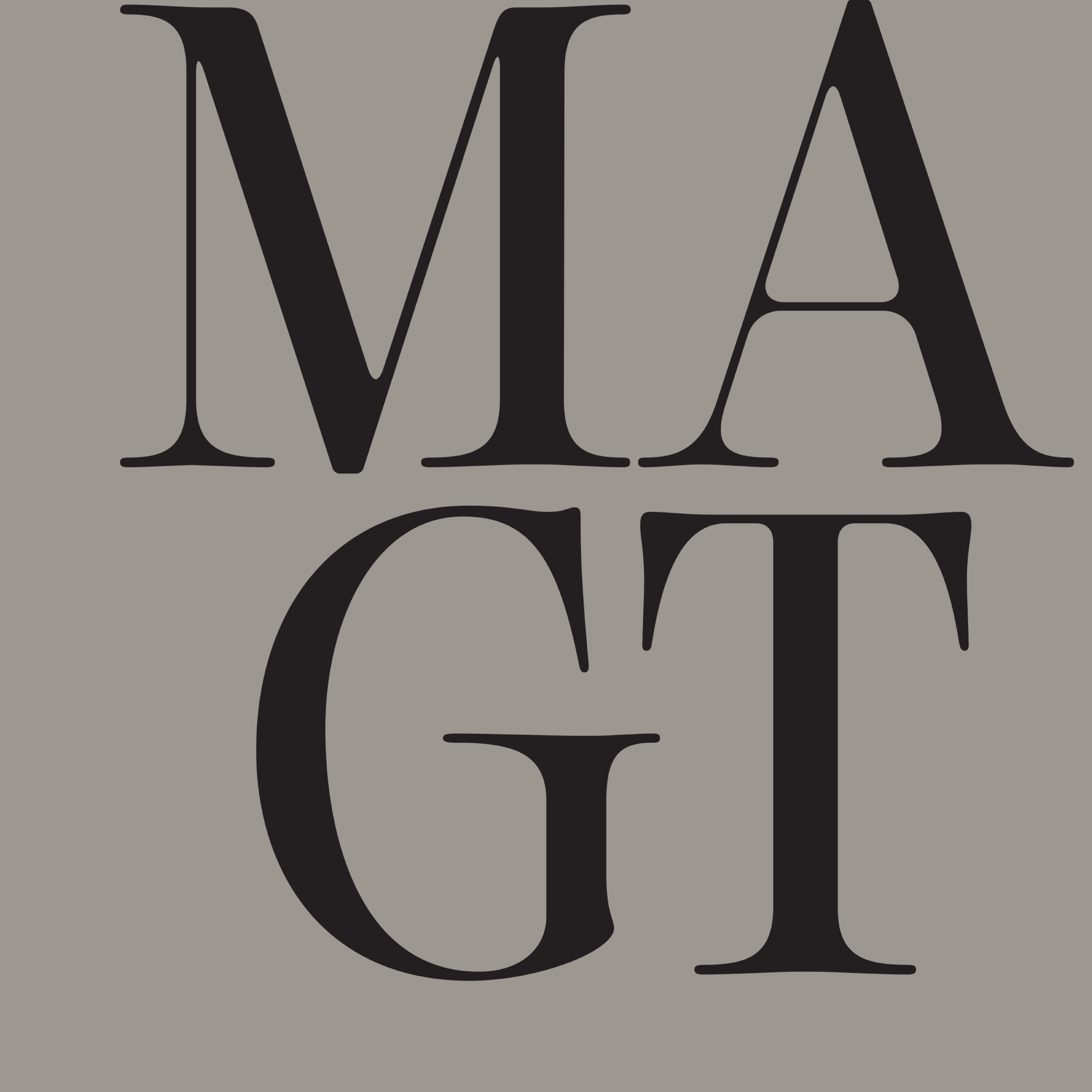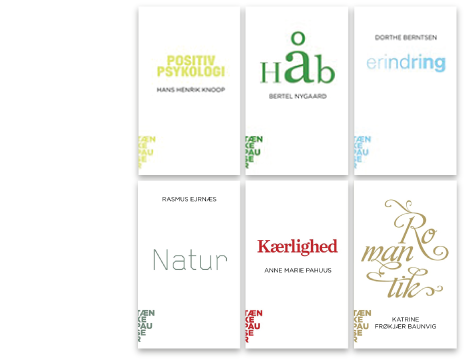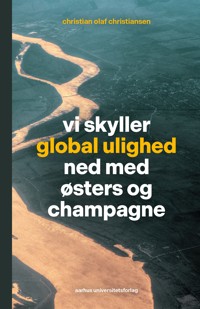
Imagining Nature
Practices of Cosmology and Identity
En del af fagområdet Antropologi
Redigeret af
Nils Bubandt,
Kalevi Kull og
Andreas Roepstorff
Med bidrag af
Björn Bjerkli,
Sabine Brauckmann,
Nils Bubandt,
Alf Hornborg,
Tim Ingold,
Randi Kaarhus,
Arne Kalland,
Lars Krogh,
Toomas Kukk,
Kalevi Kull,
Aleksei Lotman,
Bjarke Paarup-Laursen,
Morten A. Pedersen,
Anti Randviir,
Andreas Roepstorff og
Nina Witoszek
Mere om bogen
Om bogen
Inden for det sidste tiår har mange samfundsforskere forsøgt at vise, at "naturen" ikke er en evigtgyldig konstant, men derimod et værdiladet og ustabilt begreb - en historisk, kulturel og social konstruktion med stærke følelsesmæssige, moralske og politiske bibetydninger.
I Imagining Nature har en række forskere inden for biologi, social antropologi, filosofi, miljø, neurologi m.m. sat sig for at udforske det, der har ligget underforstået eller har manglet i dette nyeste forsøg på at "afnaturalisere naturen".
Bogens første halvdel om "Kosmologier" tager fat på natursynet i overordnede verdensbilleder. Bogens anden halvdel illustrerer nogle af de måder, hvorpå identitet bliver etableret igennem samspil med og forestillinger om naturen. Fx natur og identitet i Skandinavien og Tyskland; To Fulani-grupper i Burkina Faso; det konfrontationssøgende samiske samfund i Manndalen, Norge; Den rumlige verdensopfattelse hos Tsaatang nomaderne i Mongoliet og to neoklassiske huse af Le Corbusier og Wright.
"This unusual collection of writing does not disappoint. ... The chapters have been chosen because their subjects speak to each other. The two sections that group the book's papers are 'cosmologies' and 'identities'. These are two (decidedly cultural) domains in which 'practices of nature' are evident: the first in knowledge (including western science) as expressed in overarching narrative (the global), and the second in the local, social connections established through particular relations with particular nature.
Cosmologies and identities complement each other, like the contrapuntal voices of a choir singing two equal melodies that also harmonise.
The key contemporary theorist for many of the writers is Tim Ingold, a Scottish-based biologically-minded anthropologist. ... Ingold provides an opening chapter that opens up space for many of the volume's themes: 'Three in one: How an ecological approach can obviate the distinctions between body, mind and culture'. His cogent analysis of biology, cognitive psychology and social anthropology provides the basis for a broad merger that goes beyond all of the parent disciplines. ...
The balance between nature and culture is a theme of every chapter, though most focus on the interactions between them, and/or the philosophical difficulty of separating them, particularly on the ground, in practice. ...
As an Australian reader of this book, I found the strong Scandinavian/Nordic philosophies of nature intriguing. ...
Australians should welcome this intriguing collection from another place, another nature, as it probes and extends our ideas about the human and ecological condition, cosmologies nad identity." Libby Robin Australian Humanities Review
Hele anmeldelsen kan læses på http://www.lib.latrobe.edu.au/AHR/archive/Issue-April-2004/robin.html
For purchases outside of Denmark:
If you are located in the USA or Canada, please contact our US distributor, Longleaf Services, at orders@longleafservices.org or +1 919-503-6590.
For purchases in all other countries, you can find the title through our global distributor, The Mare Nostrum Group, here: https://mngbookshop.co.uk
Indholdsfortegnelse
Læseprøve
Pressen skrev
Libby Robin, Australian Humanities Review
"This unusual collection of writing does not disappoint […]. Australians should welcome this intriguing collection from another place, another nature, as it probes and extends our ideas about the human and ecological condition, cosmologies and identity."
Roy Ellen, Journal of the Royal Anthropological Society
"Each section begins with some editorial remarks, and the whole is preceded by a generous introductory essay. The editors have, through this device, tried, and I think successfully, to link some very divergent kinds of contribution, assisted by the intellectual loom of the writings of Tim Ingold, which weave an interconnecting weft throughout much of the book."
Kay Milton, Ethnos
"The collection hangs together well; the philosophy, biology and semiotics complement the anthropology and each other. The book is interesting as a complete project in interdisciplinarity, and the individual chapters all make interesting contributions to the continuing debate on how humans relate to the non-human."
Leslie E. Sponsel, Anthropological Forum
"[...] it would make a stimulating text in a graduate seminar in the humanities or natural or social sciences, because [...] it challenges and transcends the arbitrary boundaries between such academic territories predicated on dualities like nature and culture."
Netop udkommet
Forlaget skriver:
28 januar 2026
Forårets Bogtorsdage 2026
Til marts genoptager vi de månedlige Bogtorsdage i samarbejde med Det Kgl. Bibliotek i Aarhus. Datoerne arrangementerne frem…
25 november 2025
Årets sidste bogtorsdag!
Årets sidste bogtorsdag er nu lige på trapperne! Vær med, når vi, sammen med Det Kgl. Bibliotek, fejrer forfatterne bag vores…
29 oktober 2025
Kom til bogtorsdag d. 13. november!
Vi er nu klar med novembers bogtorsdag!Vær med når Aarhus Universitetsforlag sammen med Det Kgl. Bibliotek fejrer forfatterne…




